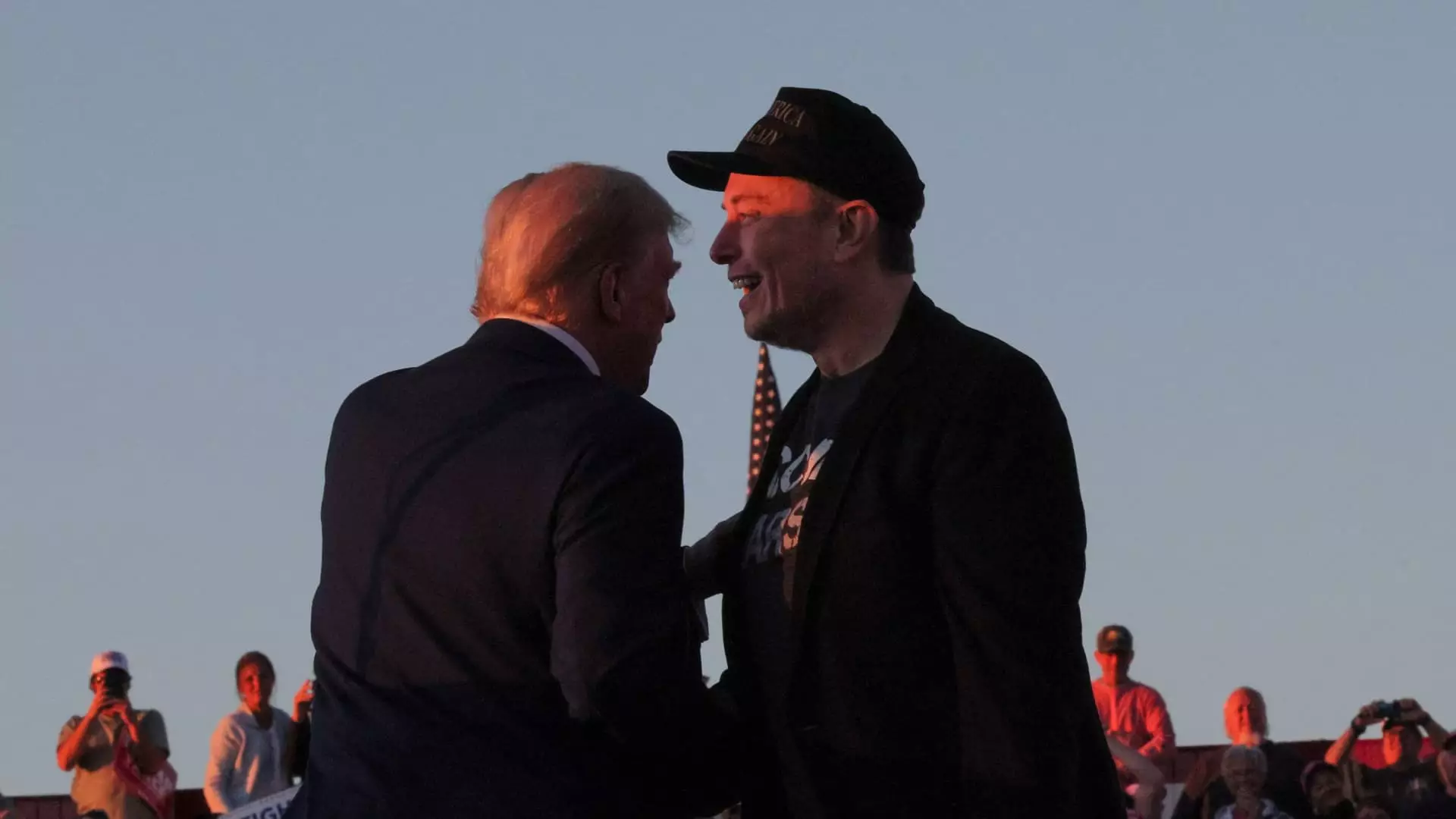As Tesla gears up to announce its quarterly results, the spotlight isn’t solely on its financial performance; it has become intertwined with the political landscapes that envelop its CEO, Elon Musk. A significant number of investors have expressed their concerns regarding Musk’s public polarizations and political involvements, particularly revolving around his association with former President Donald Trump. In forums set up for shareholders, there has been a surge of inquiries focusing on how Musk’s outspoken political stances might affect Tesla’s identity, growth, and ultimately, shareholder value. Critics argue that while Musk has every right to communicate his views, his outspoken nature may jeopardize the company’s overall branding and market performance.
Many retail shareholders have voiced a deep concern regarding the implications of Musk’s political activism for Tesla’s stability. The sentiment is palpable; an anonymous investor highlighted Musk’s need to compartmentalize his role as a CEO from his political pursuits, asserting that shareholder interests should take precedence. This sentiment captures a widespread unease—does Musk’s public engagement with controversial politics divert attention from Tesla’s core mission to innovate in electric vehicles (EVs) and sustainable energy?
Musk’s influence extends far beyond just Tesla, encompassing his leadership roles at SpaceX, Neuralink, and xAI, among others. As he juggles a myriad of responsibilities—what he whimsically labels as his “17 jobs”—the question arises: Is it sustainable? As Musk’s political rhetoric becomes more embellished, particularly with initiatives supporting Trump, investors have begun to wonder if he can effectively steer Tesla amidst these extracurricular engagements.
His initiatives, like encouraging voter registration in Pennsylvania and proposing government efficiency reforms, intertwine with his overarching political ambitions. Interestingly, although these actions may enhance his personal brand among certain voter demographics, they potentially sow discord within the Tesla stakeholder community, a demographic that includes diverse political beliefs and values. With the ongoing scrutiny surrounding his political engagements, many shareholders are left wondering if Musk’s quest for influence risks embroiling Tesla in a political maelstrom.
The repercussions of Musk’s political commentary might not be immediately visible, yet financial analysts are attempting to quantify the impact. Notably, venture capitalist Gene Munster has posited that Musk’s recent political expressions could have led to a decline in Tesla’s quarterly deliveries, estimating a decrease of 5,000 to 10,000 units. If accurate, this suggests that investor worries and customer apprehensions may materialize into measurable financial detriment, complicating Tesla’s ambitious sales objectives.
Despite the absence of overt discussions regarding Musk’s political influence at shareholder meetings or in analysts’ reports, the specter of his commentary looms large. The complex relationship between political expression and corporate performance stirs a cocktail of uncertainty. An analysis by brand consultancy Interbrand indicates that Tesla’s brand value took a hit, seeing a decline of 9% this year amidst growing confusion over its market positioning. As traditional automotive giants develop strategies to pivot into electric mobility, Tesla’s delayed innovations and stale vehicle offerings could be causing concern in the marketplace.
Musk’s political excursions invite a broader question about the risks associated with CEOs aligning their brands with specific political narratives. The polarizing nature of political affiliation in business could alienate a fraction of Tesla’s customer base, which may contribute to the company’s declining stock value. The timing is particularly concerning; Tesla’s shares have plummeted 14% year-to-date, amidst a backdrop where market indices reflect growth.
Interbrand’s CEO, Gonzalo Brujo, argues that Musk’s foray into political activism could detract from Tesla’s technological advancements and commitment to innovation, stating, “A CEO or brand aligning with anything political is taking a risk.” Brujo’s perspective encapsulates a fundamental truth: the marketplace values coherence and commitment to core missions. Tesla’s shareholders, particularly those observing trends in fiduciary responsibility, might find themselves grappling with the implications of Musk’s relentless preoccupation with political matters.
As Tesla approaches its quarterly earnings reports, the intersection of Elon Musk’s political engagement and corporate responsibility emerges as a vital theme. Investors and industry analysts alike remain vigilant, seeking clarity amid ambiguity. Musk’s unique position reflects both the potential for disruption and the necessity for prudence. His endeavor to build a future of sustainable energy rides alongside the appetite for personal recognition that politics afford—all while Tesla’s core mission should not be overshadowed. A delicate balance lies ahead as shareholders assess how to integrate Tesla’s innovative aspirations with the unpredictable nature of its emblematic leader’s political landscapes. The stakes are high; whether this balance can be maintained will decisively shape Tesla’s trajectory in the years to come.


Leave a Reply
You must be logged in to post a comment.